In 2023-24, 6331 IMGs took the Australian Medical Council MCQ exam. The pass rate for this session was 51%. In the same year, approximately 2,107 candidates participated in the AMC Clinical Exam, with a pass rate of 24%.
The Australian Medical Council Exam is an assessment for International Medical Graduates who want to practice in Australia. The exam syllabus is extensive. The exams themselves are thorough and require strategic preparation to clear.
This blog is an AMC exam guide, with tips and strategies to help candidates achieve a good final score.
Australian Medical Council Exams
The primary objective of the AMC exams is to evaluate the candidates' competency in medical knowledge and clinical skills. These can be done through:
- Assessing the clinical knowledge and understanding of medical sciences.
- Evaluating clinical skills, including
- History-taking
- Physical examination
- Diagnostic reasoning
- Clinical management
- Determining the communication skills and professionalism of candidates.
AMC Exam Preparation
The AMC exam is a significant point in an IMG’s medical career. It is the gateway for them to enter into the Australian Healthcare system. With so much at stake, it is important to have an excellent and thorough preparation strategy.
This blog will discuss all the steps and AMC exam preparation tips that can help candidates ace the AMC exam.
- Understanding the AMC Exam syllabus and pattern: This knowledge will assist in developing an effective study plan. Knowledge of the exam pattern is important in better preparation for the actual exam.
| Topics | Weightage | Content |
| Adult Health (Medicine) | 30% | Anatomy Physiology Pharmacology Pathophysiology Clinical skills like Physical examination Communication Patient counselling Management strategies |
| Adult Health (Surgery) | 20% | |
| Women’s Health (Ob/Gyn) | 12.50% | Reproductive health Pregnancy Labour Birth Post-natal care |
| Child Health | 12.50% | Includes all aspect of child health: Foetal development Transition to extra-uterine life End of adolescence Growth and physical development Puberty and intellectual development |
| Mental Health | 12.50% | Diagnosis and management of psychological, behavioural and mental disorders, illness and addictions |
| Population Health | 12.50% | Surveillance Vaccination programs Public education Epidemiology and legislation or disease management measures Patient privacy and confidentiality Informed consent and other legal issues |
1. Utilize Study Resources: Make use of recommended study resources. This can include textbooks, practice questions, and mock exams. Books for every subject are recommended by the AMC.
Some examples are:
- Nair, BKR, ed. Clinical Examination: A Problem Based Approach. Singapore: World Scientific Publishing Company, 2011.
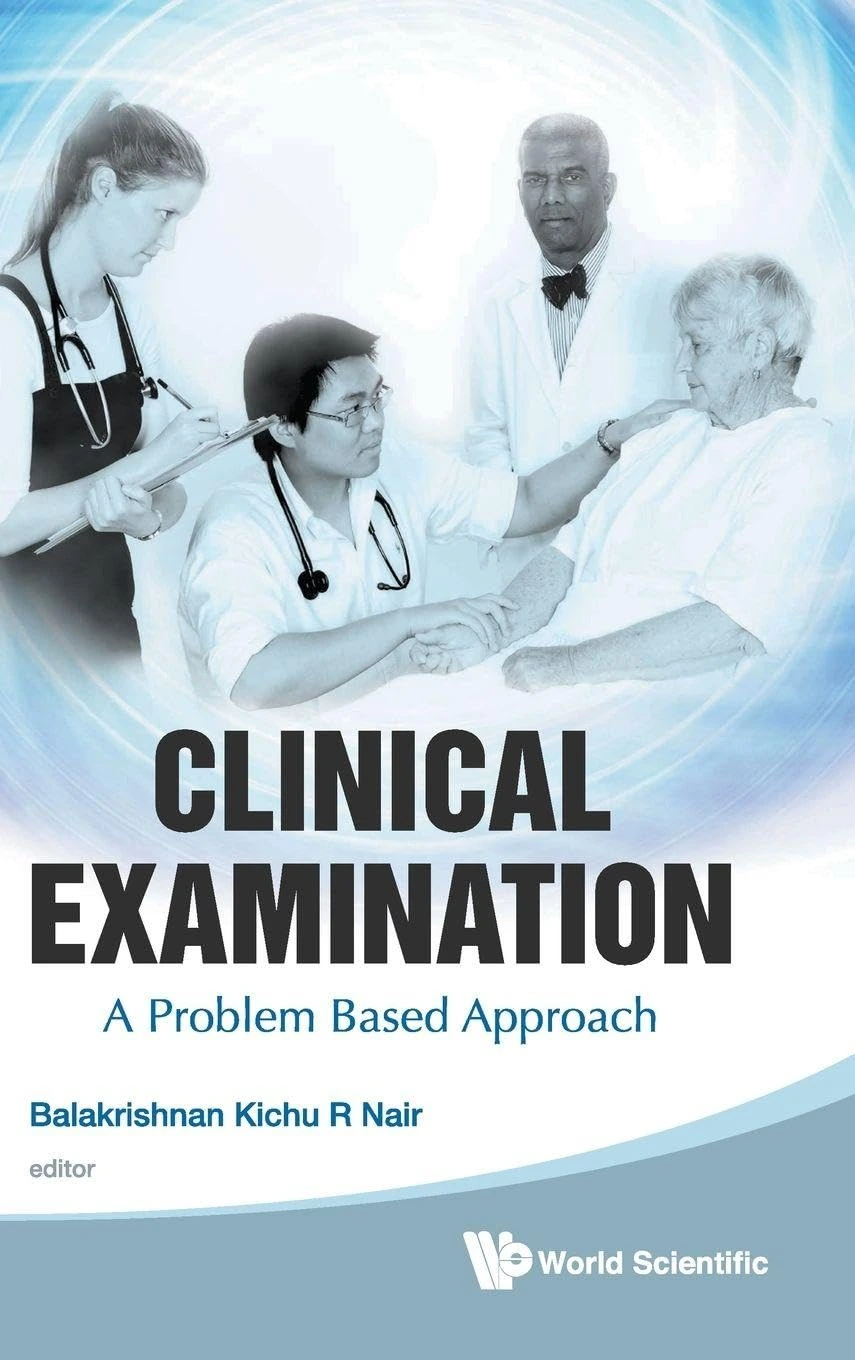
- Roberton, DM, South, Practical Paediatrics. 7th edn. Edinburgh: Churchill Livingstone/Elsevier, 2012.
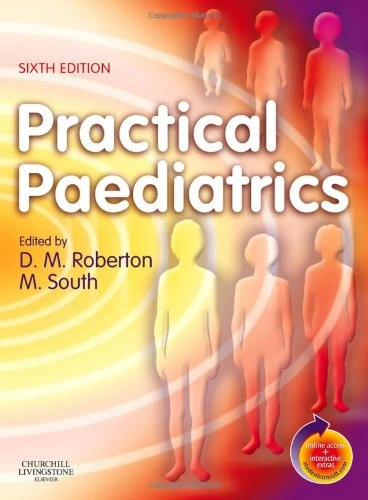
- A Primer of Clinical Psychiatry (2013) Castle D, Bassett D, King J, Gleason A
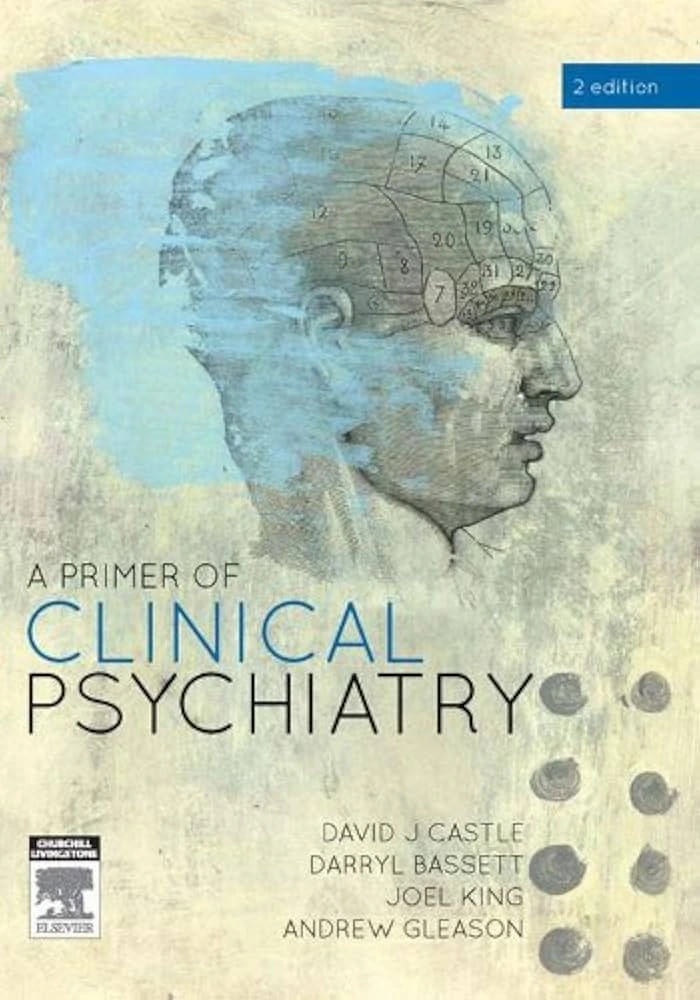
- Nikolic, A. General Surgery SET Interview: The Ultimate Preparation Guide. 2nd edn. 2022.
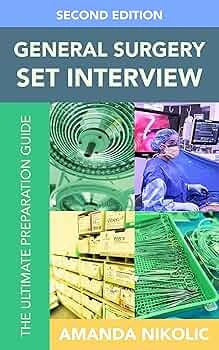
- Oats, J, Boyle, J. Llewellyn-Jones Fundamentals of Obstetrics and Gynaecology. 11th edn. London: Elsevier, 2022
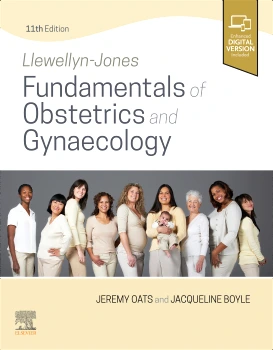
2. Create a Study Plan: Develop a structured study plan that encompasses all relevant topics. Allocate ample time for revision and practice. Ensure that you have a balanced approach. You need to keep time for both theoretical knowledge and practical skills.
An ideal study plan should have time allocated for:
- Learning new topics
- Self-Assessments
- Mock-tests
- Mock Clinical Exams
- Breaks
- Revision
3. Self-Assessment and Feedback: You should regularly assess progress. Take feedback from peers and mentors. Mock exams and practice scenarios can help you identify areas for improvement. Not only that, they also help in improving your performance.
4. Time Management: Time management is essential for any competitive exam. The best way to prepare for a time-bound exam is to practice MCQs within the given time frame. For the Clinical exam, you can try and simulate the exam conditions. This will help to improve efficiency and decision-making skills. This is best done when you have a group to practice with.
5. Support Groups: It is important to have a support group around you in exams like AMC. You can also join study groups or enrol in coaching programs for the AMC exam. Such collaboration with peers and guidance from experienced mentors is very beneficial.
At Academically, we provide mentorship programs that can help with expert guidance. Their study programs are a great way of connecting with peers from every community and forming a support system.
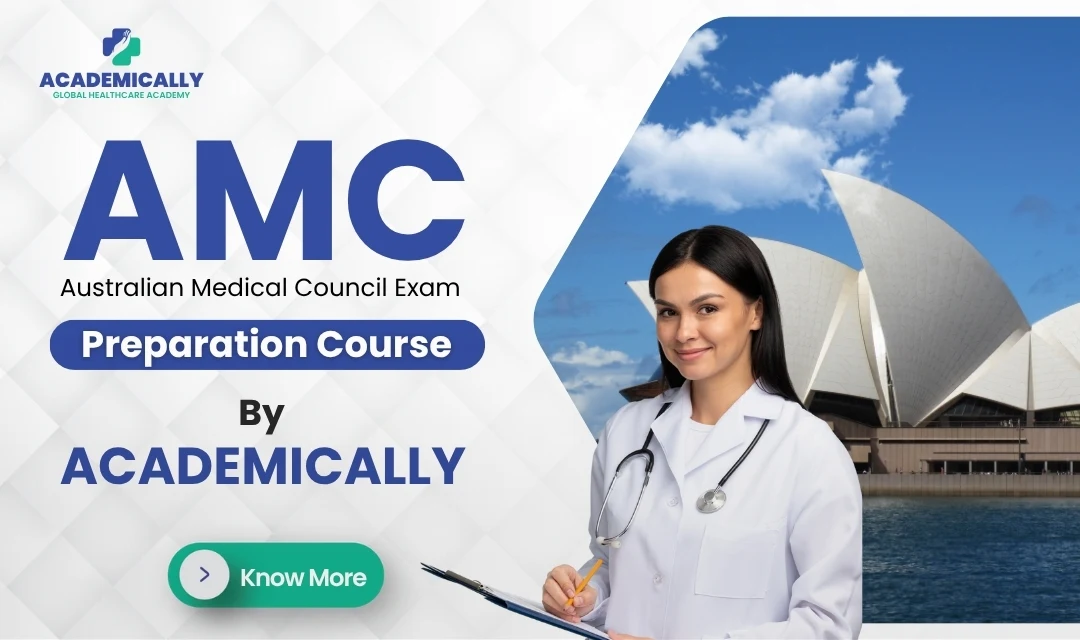
AMC Study Plan Timeline
Overview
| Duration | Focus Area | Goal |
| Month 1 | Orientation & Core Review | Build foundation in major subjects |
| Month 2 | Intensive Subject-wise Study | Strengthen clinical and applied knowledge |
| Month 3 | Practice Phase I | Start solving MCQs and timed tests |
| Month 4 | Practice Phase II | Deep revision and mock test analysis |
| Month 5 | AMC Clinical Preparation | Learn structured responses, practice cases |
| Month 6 | Final Revision and Exam Readiness | Consolidate and revise before the test |
Detailed Study Plan
Month 1 - Foundation and Familiarization
Goal: Understand the AMC exam pattern and refresh your basics.
Focus Areas:
- Understand AMC MCQ format and scoring
- Collect official resources
- Brush up on core clinical subjects
Weekly Tasks:
- Study 1 to 2 subjects weekly
- Make short notes for quick revision
- Start reading from AMC Handbook of Multiple Choice Questions
Month 2 - Deep Subject-Wise Study
Goal: Build detailed understanding and clinical reasoning.
Focus Areas:
- Go deeper into high-yield topics
- Use case-based learning and AMC Qbanks
- Revise key guidelines
Month 3 - Practice Phase I
Goal: Strengthen exam skills through practice.
Tasks:
- Attempt 100-150 MCQs per week
- Simulate test timing
- Analyze errors and revise related topics
- Review Australian healthcare system
Month 4 - Practice Phase II
Goal: Get exam-ready.
Tasks:
- Take full-length mock tests every week
- Time your answers and track progress
- Identify and focus on weak areas
- Revise high-yield topics from notes and flashcards
- Review past AMC recall questions
By the end of this month, you should consistently score above 65–70% in practice tests.
Month 5 - Clinical Exam
Goal: Prepare for AMC Clinical stations
Focus Areas:
- Practice role-play with peers or mentors
- Follow AMC Clinical Examination Handbook
- Focus on communication, empathy, and structured clinical reasoning
- Simulate real exam timing and setting
Month 6 - Final Revision & Exam Readiness
Goal: Consolidate knowledge and ensure confidence.
- Revise all short notes and summaries
- Revisit difficult questions and explanations
- Attempt 2–3 final mock exams
- Prepare your exam-day checklist
- Prioritize rest, healthy diet, and sleep
Last Week Tips:
- Don’t start new topics
- Focus on recall and confidence
- Visualize success — you’re ready!
AMC Exam Preparation: Tips to Remember
Apart from the above-mentioned steps, a few more things are essential:
- Keep up to date with any developments in the AMC exam. There can be changes in scoring pattern, passing marks, exam center, etc.
- Take breaks in between study sessions.
- Take note of the highest-scoring subjects and focus on those.
- Understand the weak points and work to improve them.
- Join courses for disciplined and expert guidance.
It is important to understand that apart from dedication and hard work, a strategic preparation plan is essential in passing the AMC exam.
Say Hi to Your Australian Career
Australia is in need of doctors. The shortage of doctors means more opportunities for you. Now is the best time to take the AMC exam and start your journey.
It is normal to have queries and questions related to the AMC exam and how to prepare for it. It is important to connect with the correct people to ensure proper guidance.
If you are also preparing for AMC, then Academically is the place for you. With a stellar track record of candidates clearing AMC, our AMC Exam Preparation Course can be the difference between success and disappointment.





